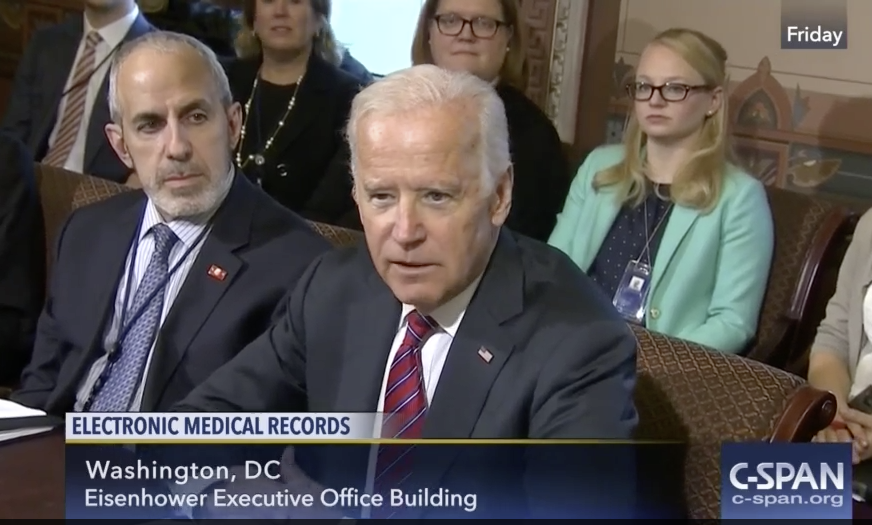Open Source Initiative
See the following -
5 Q’s for Nnenna Nwakanma, Africa Regional Coordinator for the World Wide Web Foundation
 Right now, the community of civil society, media, and academia using open data is still growing in Africa. Governments are still not sharing enough open data. And while more and more freedom of information laws are being passed, citizen inquiries are not always responded to in practice. We don’t have clear open data champions.But I’m hopeful this will change because in spite of the challenges a number of excellent projects have shown us what’s possible. For example, the Africa Data ConsensusAfrica Open Data Conference, and the growing network of open street mapping across the continent.
Right now, the community of civil society, media, and academia using open data is still growing in Africa. Governments are still not sharing enough open data. And while more and more freedom of information laws are being passed, citizen inquiries are not always responded to in practice. We don’t have clear open data champions.But I’m hopeful this will change because in spite of the challenges a number of excellent projects have shown us what’s possible. For example, the Africa Data ConsensusAfrica Open Data Conference, and the growing network of open street mapping across the continent.
- Login to post comments
7 Ways to Discuss Legal Matters with an Open Community
 Having watched a fair number of people attempt to engage both the Open Source Initiative's licensing evaluation community and the Apache Software Foundation's legal affairs committee, I'd like to offer some hints and tips for succeeding when it's your turn to conduct a legal discussion with an open community. First and foremost, make sure the person conducting the conversation is both qualified and empowered. Don't send proxies; they simply frustrate the community, who quickly work out that your representative is always playing the second-hand car salesman and going to the back room to ask for a deal...
Having watched a fair number of people attempt to engage both the Open Source Initiative's licensing evaluation community and the Apache Software Foundation's legal affairs committee, I'd like to offer some hints and tips for succeeding when it's your turn to conduct a legal discussion with an open community. First and foremost, make sure the person conducting the conversation is both qualified and empowered. Don't send proxies; they simply frustrate the community, who quickly work out that your representative is always playing the second-hand car salesman and going to the back room to ask for a deal...
- Login to post comments
Big Names Like Google Dominate Open-source Funding
Network World’s analysis of publicly listed sponsors of 36 prominent open-source non-profits and foundations reveals that the lion’s share of financial support for open-source groups comes from a familiar set of names. We found 673 companies on the donor rolls of our list of organizations – which was drawn heavily, though not entirely, from the Open Source Initiative’s list of affiliates. Google was the biggest supporter of open-source organizations by our count, appearing on the sponsor lists of eight of the 36 groups we analyzed. ...
- Login to post comments
Considering Open Source Licenses
What stage of development is your project in right now? Have you finished the planning phase? Are you going to work with a team? Will the project be split up into different modules? And so on. The principle of DRY (Don’t Repeat Yourself) has become an unwritten rule for developers. Instead of always starting from scratch on each new project, find ways to build upon previous work. This will save you time and other resources. In other words, do not reinvent the wheel; put to use the great work that others have perfected and made “freely” available for you to build upon...
- Login to post comments
Is The 1.5+ Trillion Dollar HITECH Act a Failure?
 Hopefully, the public statements made by President Obama and Vice President Biden will lead to a public debate over the monumental problems that the HITECH Act and proprietary EHR vendors have caused the American people. While the press continues to report the figure of $35 billion as the cost of implementing EHRs, that figure does not tell the entire story. Perhaps the next step is to provide accountability and transparency. That would start with firm numbers regarding the real costs of EHR implementations forced on an unprepared healthcare system by the HITECH Act.
Hopefully, the public statements made by President Obama and Vice President Biden will lead to a public debate over the monumental problems that the HITECH Act and proprietary EHR vendors have caused the American people. While the press continues to report the figure of $35 billion as the cost of implementing EHRs, that figure does not tell the entire story. Perhaps the next step is to provide accountability and transparency. That would start with firm numbers regarding the real costs of EHR implementations forced on an unprepared healthcare system by the HITECH Act.
- The Future Is Open
- Login to post comments
Obama and Biden Blast EHR Vendors for Data Blocking
 As they are winding their terms in office, President Barack Obama and Vice President Joe Biden dropped a stink bomb on the health IT industry. Speaking at different events on Friday, January 9th, the President and Vice President both criticized proprietary electronic health record (EHR) vendors as the primary obstacle to the success of their administration’s health care strategy. This is the highest level acknowledgment so far of the serious impact that “lock-in” EHR software vendors are having on America’s medical infrastructure and the ability of physicians to provide medical care.
As they are winding their terms in office, President Barack Obama and Vice President Joe Biden dropped a stink bomb on the health IT industry. Speaking at different events on Friday, January 9th, the President and Vice President both criticized proprietary electronic health record (EHR) vendors as the primary obstacle to the success of their administration’s health care strategy. This is the highest level acknowledgment so far of the serious impact that “lock-in” EHR software vendors are having on America’s medical infrastructure and the ability of physicians to provide medical care.
Red Hat CEO Jim Whitehurst to be keynote speaker for Open Summit
 Jim Whitehurst, president and CEO of Red Hat...will be the opening keynote speaker for the inaugural Open Summit, a forum for college and university leaders, taking place May 23rd, 2016 at New York University's Washington Square Campus. The Open Summit will explore the increasingly expanding domain of open educational initiatives, and assess their impact across the campus and curriculum. The event will bring together a broad base of educational stakeholders to share best practices in open education, common understanding of open approaches, and strategic directions, in order to better facilitate communication and synchronization across the emerging open landscape.
Jim Whitehurst, president and CEO of Red Hat...will be the opening keynote speaker for the inaugural Open Summit, a forum for college and university leaders, taking place May 23rd, 2016 at New York University's Washington Square Campus. The Open Summit will explore the increasingly expanding domain of open educational initiatives, and assess their impact across the campus and curriculum. The event will bring together a broad base of educational stakeholders to share best practices in open education, common understanding of open approaches, and strategic directions, in order to better facilitate communication and synchronization across the emerging open landscape.
- Login to post comments
What Blockchain and Open Source Communities Have in Common
 One of the characteristics of blockchains that gets a lot of attention is how they enable distributed trust. The topic of trust is a surprisingly complicated one. In fact, there's now an entire book devoted to the topic by Kevin Werbach. But here's what it means in a nutshell. Organizations that wish to work together, but do not fully trust one another, can establish a permissioned blockchain and invite business partners to record their transactions on a shared distributed ledger. Permissioned blockchains can trace assets when transactions are added to the blockchain. A permissioned blockchain implies a degree of trust (again, trust is complicated) among members of a consortium, but no single entity controls the storage and validation of transactions.
One of the characteristics of blockchains that gets a lot of attention is how they enable distributed trust. The topic of trust is a surprisingly complicated one. In fact, there's now an entire book devoted to the topic by Kevin Werbach. But here's what it means in a nutshell. Organizations that wish to work together, but do not fully trust one another, can establish a permissioned blockchain and invite business partners to record their transactions on a shared distributed ledger. Permissioned blockchains can trace assets when transactions are added to the blockchain. A permissioned blockchain implies a degree of trust (again, trust is complicated) among members of a consortium, but no single entity controls the storage and validation of transactions.
- Login to post comments